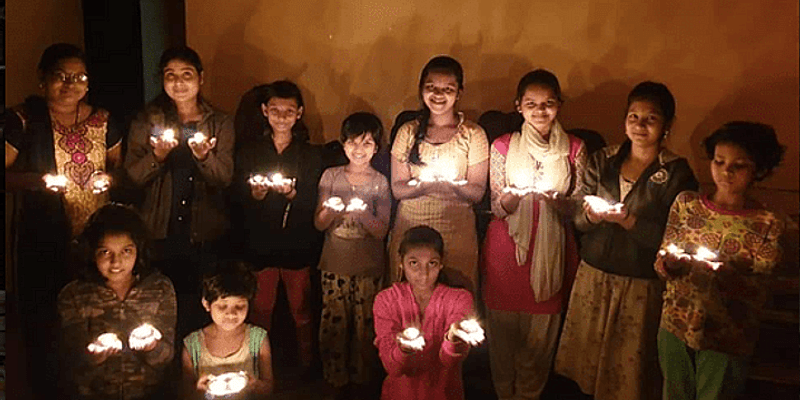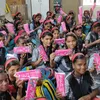How Kritagyata Trust is helping vulnerable communities in Karnataka during the pandemic
The NGO has been working in the most remote villages in Karnataka, and has an initiated a vaccination drive for the transgender community.
In the southernmost part of Coorg, just a kilometre away from the Kerala border, lies a cluster of villages so remote that the region has barely seen any development or infrastructure. The children who attend the local schools have limited access to proper books or uniforms. This is where the Kritagyata Trust, a Bengaluru-based NGO which has been working in the space of women and children’s welfare since 2015, stepped in and recently adopted two government schools in the area.
Speaking to Social Story, Kritagyata Founder Aruna Diwakar says,
“The word Kritagyata means ‘gratitude’ in Sanskrit, and reflects my gratitude for the opportunity I have been given to serve those in need. A key initiative is a home the Trust runs in Yelahanka for 12 girls between the ages of eight and 15. These are single-parent and abandoned children who had no hope of survival. We provide them with things like food, shelter, clothing, education, and healthcare,” adding that their primary focus is on education for rural and underprivileged children.

Children at the home in Yelahanka run by the Kritagyata Trust
“Since we started, we have impacted the lives of over 25,000 children through various activities,” she says.
Kritagyata is involved in multiple activities, including donating books, setting up computer labs, building toilets – especially for girls – in government schools located in rural areas, and providing drinking water facilities where there is fluoride in the water bodies.
“We run a menstrual hygiene programme called Sweccha, where we answer questions related to menstrual hygiene. We do these activities in rural areas where there is a real need with the help of ASHA workers. We also donate sanitary pads to more than 350 women every month,” says Aruna.
She says that since the outbreak of the COVID-19 pandemic, the Trust has been working in the remotest villages of Karnataka. “We have given more than 2,000 home isolation kits for the COVID-19 positive patients. This was to encourage them not to go out, keep themselves indoors, and help others by not spreading the virus. This was the major initiative, and we concentrated more on the people who can't afford medicines,” she says, adding that there are many people who cannot afford the Rs 700 it costs to buy the medicine.
“We also reached out to 400 to 500 COVID-19 positive patients in two tribal colonies. Apart from that, we reached out to another 500 COVID-19 patients in a village near Kakanakote, deep in the woods, where there is zero infrastructural development. We have also helped out more than 600 families with dry groceries,” she adds.
Kritagyata has recently undertaken a drive to provide vaccines to transgender persons. “That is a sensitive segment of the society who can also be super-spreaders if they're infected. So, we are taking it up as an initiative, and as a token of appreciation, we are even giving them grocery kits. We have done all sorts of groundwork, the data is already collected and the places fixed,” says Aruna.
The team has also been working with volunteers in the field in villages to create awareness about the use of hand sanitisers and wearing face masks, as well as distributing them.
The Trust currently runs entirely on individual donations that can be made on their website. “Our website shows the separate categories for each of our social activities. People can see what we are trying to do. We are also happy to have deeper discussions with those who want to be a part of our initiatives,” Aruna says.
Edited by Kanishk Singh






